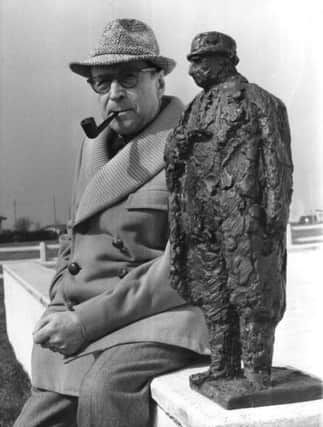Allan Massie: How winning a book prize can sometimes prove a handicap


The Booker – Man Booker now – is a bit different, because it’s awarded to a single book rather than for a lifetime’s achievement. Nevertheless it may still be a millstone round an author’s neck. Salman Rushdie, for example, hasn’t written anything near as good as Midnight’s Children which won the Booker way back in 1983. Yann Martel won the prize 13 years ago with The Life of Pi. This was a great success for his publisher Canongate too. Subsequent novels haven’t done as well, but Canongate are bringing out his new novel The High Mountains of Portugal in February, and the word is this is at least his best since Pi.
Canongate have two other interesting Spring publications. Gillian Slovo’s Ten Days comes out in March. Slovo, South African born, daughter of the Communist anti-apartheid activists Joe Slovo and Ruth Fest, is the author of a fine novel, Ice Road, about the siege of Leningrad. Her new one, Ten Days, deals with the London riots of 2011. Are we too close in time for the subject to be treated other than journalistically?
Advertisement
Hide AdIn May, Canongate publish Above the Waterfall by Ron Rash, whom I find perhaps the most interesting and satisfying of contemporary American novelists. His work is set in the Appalachian Mountains, Scots-Irish redneck America. Unlike, say, Jonathan Franzen, he writes with understanding and sympathy about characters who are unlikely to read literary novels, and does so very well. He’s the best Southern novelist since Faulkner.
The French novelist JG Le Clezio, born in 1940, was a surprise winner of the Nobel in 2008. Few in the English-speaking world knew much about him, but even the French were somewhat startled. Atlantic Books publish The Prospector in April. Set, mostly in Mauritius, this has been described as “a compendium of the grand myths rooted in the European colonial experience.” However good it may be, it won’t show that there can still be life in a novelist after the Nobel, for it was first published in France as Le Chercheur d’Or in 1985.
One is, or should be, always on the look-out for new writers. Callan Wink has published stories in the New Yorker. His first collection, Dog Run Moon, comes from Granta in March. They are set against what the publishers call “the rugged backdrop of the untamed West”, and will – apparently, remind you “just how good writing can be”. Perhaps, if only. Still they may be right. Wink works as a fishing guide on the Yellowstone River in Montana. This is happy news at a time when most writers of fiction have university jobs teaching creative writing.
In January House of Zeus publish Gull by Glenn Paterson. Colm Toibin has called Paterson “the most serious and humane chronicler of Northern Ireland over the past 30 years.”
Older readers, at least, may remember the government-sponsored fiasco of the De Lorean car which was supposed to help regenerate the province’s economy. The novel’s narrator is a Vietnam veteran working for De Lorean, and it’s a tragi-comic story of terrorism and fraud.
In April, Faber bring out a prize-winning Italian novel Little Warrior by Giuseppe Catozzella. This is even more bang up to date than Slovo’s Ten Days, the heroine being a young Somali girl whose ambition is to become an Olympic athlete.
Advertisement
Hide AdTrying to get to Europe, she becomes a victim of the criminal people-traffickers. This may see more than a touch trendy, but it comes with a warm recommendation from Roberto Saviano, the author of Gomorrah, the book that exposed the criminality of the Neapolitan Camorra. So it may be very good.
For those who haven’t yet cottoned on to the news, Penguin are in the process of re-publishing Simenon’s 75 Maigret novels, one every month. The Spring lot has three very good ones. Maigret’s Holiday (February), Maigret and His Dead Man (March) and My Friend Maigret (May).
Advertisement
Hide AdFinally, a non-fiction book that I greatly look forward to: The Last Communard by Gavin Bowd, Lecturer in French at the University of St Andrews. Non-fiction, but this story of a man who fought in the Paris Commune in 1871 and died in Siberia in 1942, sounds as if it should be stranger than fact. It’s published by Verso.